Meeting
Climate Change and Biodiversity in North Korea
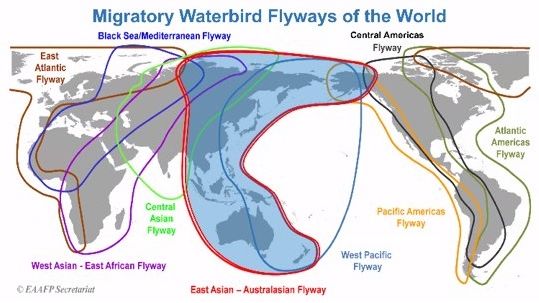
"Integrating biodiversity into planning for adaptation to climate change"
Doug Watkins started by giving the participants of the "Zoom" conference an overview of the structure of the EAAFP itself, which is a voluntary network of 37 partners governed by a strategic ten-year plan and holding a biennial meeting of the partners (18 governments, 17 international NGOs, including Hanns Seidel Foundation, and one company). Afterwards, he explains the work and efforts of EAAFP to build a regional partnership for the protection of migratory birds and important wetland habitats or sites. The aim is to enable the development of a flyway network of sites, or rather a "climate-resistant" network of internationally important sites, as these are important for the conservation of individual populations of migratory birds and the provision of ecosystem services. Due to the ongoing hard work of EAAFP, this now includes 147 sites.
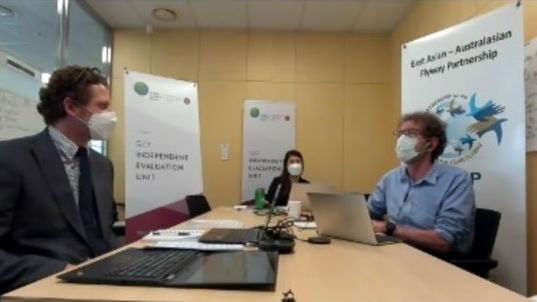
Afterwards Watkins addressed the issue of climate change. He went on to discuss the consequences and challenges that this situation poses for the conservation of migratory birds and wetlands. He also discussed how to adapt to the conditions of climate change as part of their work and illustrated how much leeway they have in doing so. In this respect, Watkins briefly explained important key elements to be taken into account when planning and evaluating climate change adaptation projects. With regard to monitoring and evaluation, Watkins explained the different options available both at the EAAFP and international level.
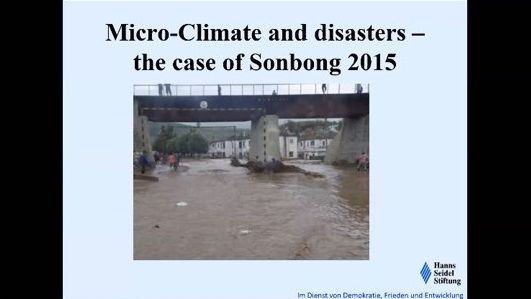
"Forest Cooperation in North Korea: Activities, challenges and the potential for monitoring and evaluation - the experiences of the HSF"
Dr. Seliger informed about sustainable forestry projects of HSF and his experiences with reforestation efforts in North Korea. As an introduction to the topic, the problem of the lack of sustainable forestry and national forest areas in North Korea is explained, which results in annual natural disasters, of which Dr. Seliger cited the floods of Sonbong in 2015 as an example.
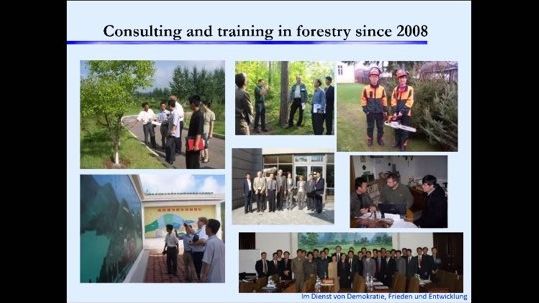
For this reason the Hanns Seidel Foundation has been committed to forestry in North Korea for many years. Since 2006 it offers education for sustainable forestry as well as consulting and training in forestry through various projects, seminars, scholarships and workshops. But also on the ministerial level North Korea is supported by the foundation, for example in the design and development of the website "Hwanggeumsan" in the North Korean intranet, where all questions concerning reforestation and sustainable forestry can be found.
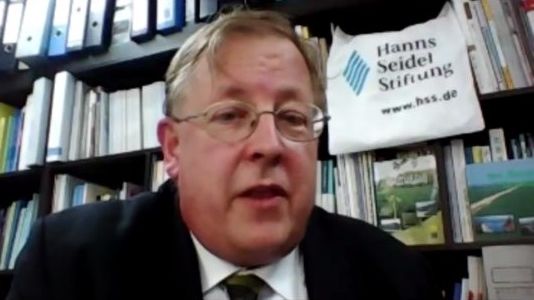
In addition to the current forestry strategy in North Korea and the efforts of North-South cooperation, he also spoke about the challenges currently posed mainly by sanctions, the need for a clean financial channel for international projects and the importance of creating closer relations with North Korea. Regarding monitoring and evaluation, Dr. Seliger explained that this is difficult because North Korea prefers closed and "one-off" activities and physical borders such as travel, accessibility, etc. are difficult to overcome.
The lunchtalk was concluded with a half hour discussion round, during which each participant had the opportunity to have their questions answered by the two speakers.
